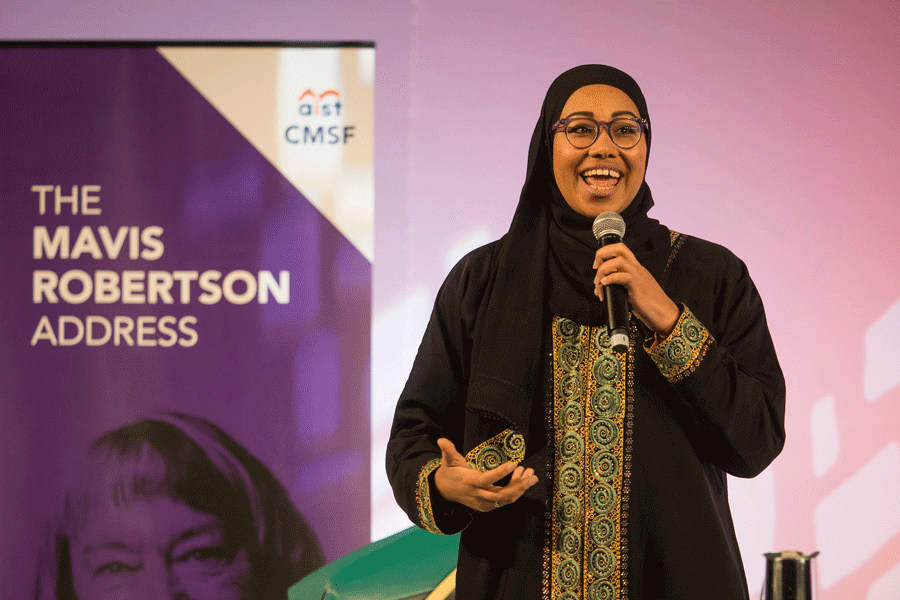Interview with Investment Magazine on Unconscious Bias
Yassmin Abdel-Magied delivering the Mavis Robertson address via Investment Magazine
I was honoured to present the Mavis Robertson address at the Conference of Major Superannuation Funds in Brisbane this year. As part of the engagement, I answered a few questions for Investment Magazine on #BeatingBias. Here is some of what I said:
In your 2014 TED Talk, you make the point that acknowledging unconscious bias is “not an accusation”. Do you find many people still resist discussions about beating unconscious bias and get defensive?
In 2014, unconscious bias was a relatively new concept in the corporate world. Today, I think many people are aware of its existence, but rather than be outwardly defensive, sometimes they think it is an excuse for biased behaviour – as in, ‘Oh well, I am biased, there is nothing I can do about it.’ The other thing I often hear is people saying that they aren’t biased, and then immediately follow it up with a statement or question that demonstrates the exact bias they were trying to deny. Sometimes those who think they are the least biased are the ones with the most deeply entrenched ways of seeing the world.
How do you suggest people start the process of identifying their own unconscious biases?
It starts with being open to the idea that we are all biased, and that all of us need to go through processes of identifying and acknowledging the biases that we hold. It’s about asking ourselves about every single assumption we make and then questioning why we have made that assumption – where has the information come from, and is there space for that assumption to change? If we have a gut feeling someone is going to be a good leader, for example, is it because they have actually demonstrated anything, or is it because they are tall, they seem sure of themselves, they remind us of ourselves, etc? We need to be comfortable with the idea of being uncomfortable – challenging our own biases is never a comfortable experience, but it is worthwhile.
In that TED Talk, you challenged people to seek out and mentor someone different to them. Have you seen any good examples of organisations doing that systematically? How has it worked?
There are a couple of organisations I see do this well, and it tends to be places where the idea of inclusion is a value that is built into the very DNA of the organisation. Organisations that understand how power dynamics work, that demand that you are on board with the culture of the organisation, that see supporting and empowering those with structural disadvantage as a must have, not a nice to have. It works best when everyone in the organisation understands that this is a company-wide ethos, and when individuals are willing to do everything they can in their power to make a difference for others. That sometimes involves sacrifice and discomfort, but when people believe in a goal that is bigger than themselves, it works out well.
What is your advice for someone who knows there is a problem with unconscious bias within their organisation but feels they are not senior enough to lead change?
Leading conversations at a peer-to-peer level is incredibly important and powerful, so that should not be underestimated. Cultural changes need to be both top down and bottom up, so finding ways to stimulate the grassroots conversation can be a stepping stone to broader understanding within the organisation. Also, looping in a champion, or someone else at a higher level who believes in the need for change, is also a good option.
What would you say to any senior executives or directors who are confident they are not afflicted by unconscious bias?
The science says that we all are – even me! The more we think we are not affected by it, the bigger the cognitive blind spot is. The first step in addressing any problem is to admit there is a problem, so I always encourage people to be open to admitting there might be bias, even as a thought experiment. Acknowledging unconscious bias isn’t saying someone is bad per se, but it is an opportunity for improvement – and what senior executive doesn’t like finding ways to improve?


